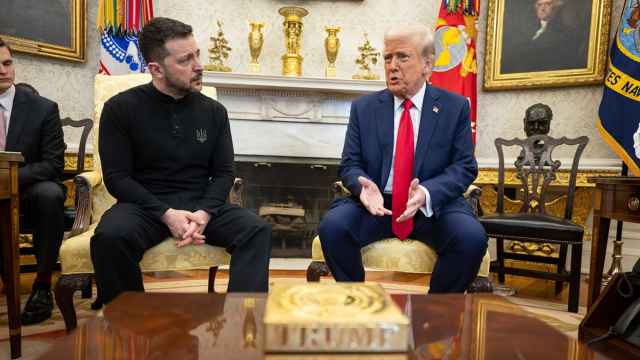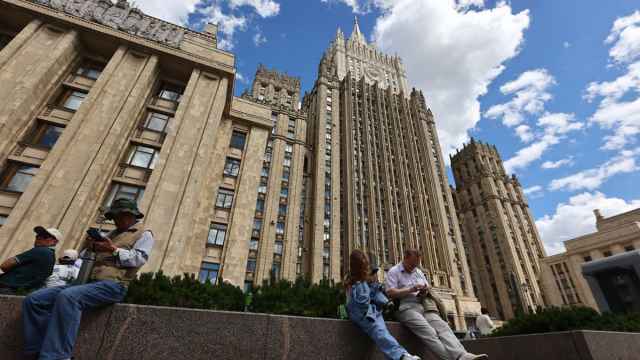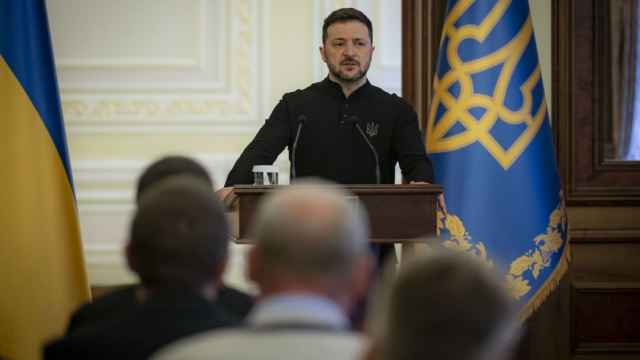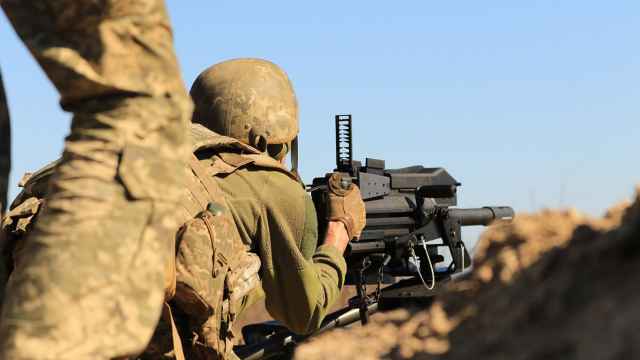Feb. 11 marked the 124th anniversary of the birth of Boris Pasternak, the famed Soviet author best known for his book "Doctor Zhivago," which was published abroad after being banned in the Soviet Union.
Pasternak's birthday was celebrated with great fanfare by Russia's literati, including a new exhibit dedicated to the author and a reading of his work at the House Museum of Marina Tsvetaeva. However, a more demonstrative celebration of the author's legacy could be seen on the website of the Russian branch of the PEN International authors' association, where 51 Russian authors posted an open letter about the state of free speech in the country.
"Recently, in our country we see more and more distinctly the appearance of an extremely dangerous tendency toward the restriction of the constitutional rights of citizens, first and foremost the restriction of freedom of speech and the right to disseminate and receive information," the letter says.
The authors go on to mention specific instances of what they consider to be government pressure on free speech, starting with the recent boycott of Dozhd TV, an independent television channel that has been taken off the air by numerous cable providers after a controversial broadcast about the Siege of Leningrad. The authors blame the government for the boycott of Dozhd, and also note increasing pressure on independent media like the radio station Ekho Moskvy and the newspaper Novaya Gazeta.
The 1965 film adaptation of Pasternak’s “Doctor Zhivago” is the 8th highest-grossing film of all time, while Mosfilm produced an epic eight-hour miniseries based on the book in 2006. The Russian Culture Ministry recently announced they will support the creation of new television shows based on Russian literature,
Though now revered as one of Russia's greatest authors of the 20th century, Pasternak was a controversial figure during his lifetime, and suffered from the Soviet Union's restrictions on speech. Though Pasternak himself was never arrested, he watched close friends be imprisoned and executed during Stalin's purges of the 1930s — Pasternak's friend Titsian Tabidze was executed in 1937, while his mistress, Olga Ivinskaya, was imprisoned and miscarried Pasternak's child early in her 10-year sentence.
Though Pasternak began writing Doctor Zhivago as early as 1910, the book remained unpublished until 1957. Even after Stalin's death, it proved impossible to publish the work in the Soviet Union due to its unorthodox stance on the Russian Revolution, and Pasternak resorted to publishing the text in the West.
Despite its warm reception in the West, Pasternak was punished for sending his work abroad — an outpouring of criticism forced Pasternak to decline the Nobel Prize, and in 1958, the Union of Soviet Writers put Pasternak on trial and expelled him from the union. Pasternak's health suffered as a resulted of his condemnation, and the writer died in 1960.
A full 54 years later, Pasternak is now being honored with an exhibit at the House Museum of Marina Tsvetaeva, another Soviet author and close friend of Pasternak who committed suicide in 1941 after the arrest of her husband and daughter. The main focus of the exhibit is a set of photographs of Pasternak taken by Valery Avdeyev, a good friend of Pasternak.
Though Avdeyev was not a professional photographer, his portrait photographs, made in Chistopol in 1942, capture the writer in personal moments, revealing more emotion than in most of his photos.
Pasternak, left, with Chukovsky at the 1934 Congress of Soviet Writers.
The widow of the poet's son, Elena Pasternak, attended the exhibit's opening and shared her memories of Boris, discussing his friendship with Avdeyev and Tsvetaeva. A selection of Pasternak's poems were also recited at the exhibit opening by Antonina Kuznetsova, a professor at Russian University of Theater Arts, or GITIS, and national actress of Russia.
While Pasternak has been dead for half a century and can no longer appreciate that opinions on his work have changed, Russian authors like those in PEN International have been active in criticizing restrictions on free speech and preventing the resurrection of Soviet-style government censorship. In November, a government organized "First Russian Literary Meeting" was widely criticized by prominent writers like Boris Akunin and Eduard Limonov, who accused Putin of seeking a photo-op with Russia's literary greats. Akunin also signed the PEN letter for free speech.
Contact authors at: g.golubock@imedia.ru, artsreporter@imedia.ru
A Message from The Moscow Times:
Dear readers,
We are facing unprecedented challenges. Russia's Prosecutor General's Office has designated The Moscow Times as an "undesirable" organization, criminalizing our work and putting our staff at risk of prosecution. This follows our earlier unjust labeling as a "foreign agent."
These actions are direct attempts to silence independent journalism in Russia. The authorities claim our work "discredits the decisions of the Russian leadership." We see things differently: we strive to provide accurate, unbiased reporting on Russia.
We, the journalists of The Moscow Times, refuse to be silenced. But to continue our work, we need your help.
Your support, no matter how small, makes a world of difference. If you can, please support us monthly starting from just $2. It's quick to set up, and every contribution makes a significant impact.
By supporting The Moscow Times, you're defending open, independent journalism in the face of repression. Thank you for standing with us.
Remind me later.





